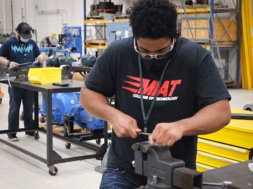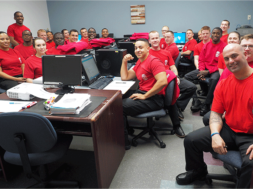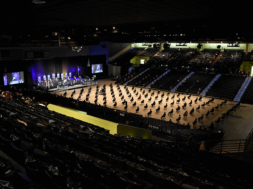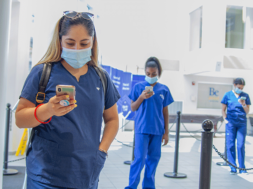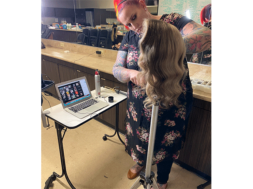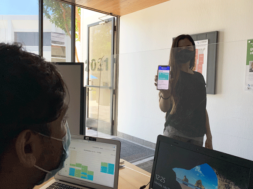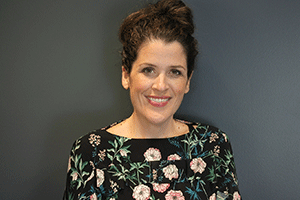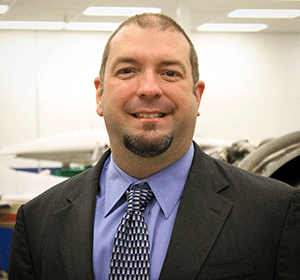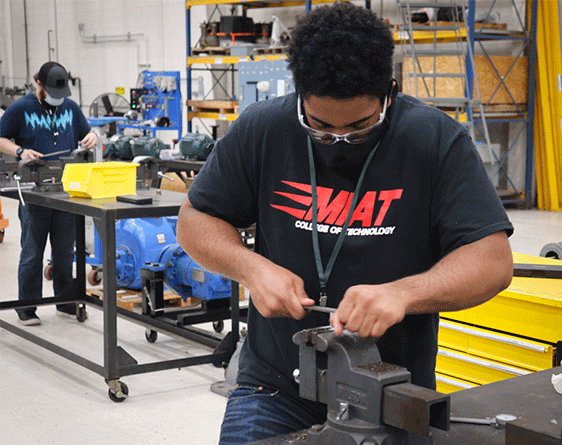
Reopening MIAT College Campuses with Compliance, Care, and Compassion
By Jennifer Paugh, President and John Willis, President, MIAT College of Technology
While no one could have guessed at the beginning of 2020 what the last 12 weeks would bring to the career education sector, we can say with confidence that we certainly did not expect that our days, nights, and weekends would be consumed with suspending all on-campus operations for two campuses, a deep sanitization of our facilities, and transitioning as quickly as possible to a 100% online, remote approach. Like many of our peers, the hands-on component of our curriculum is what many of our students gravitate toward and is critical in allowing them to demonstrate the needed course competencies.
No matter what we expected, we knew, without hesitation, that it was essential that we continue our 50-year mission and allow our students to continue to make progress toward their academic and career goals in this challenging environment.
Although the reality of this COVID-19 pandemic has hit us and our peers extremely hard, we are adapting quickly and moving forward while complying with local, state, and federal guidelines. From the beginning as Presidents, we agreed that our first and highest priority was the health and well-being of 1,200 students, faculty, staff and, by association, thousands of their loved ones in the Detroit Metro and greater Houston areas. This focus helped us as we worked through the multiple decisions and directions, we had to navigate within the last three months.
Two campuses, one united college
MIAT College of Technology is an accredited private career school that operates two campuses that can accommodate up to 1,000 students at the Canton campus and up to 800 students at the Houston campus when fully functioning. Our Canton campus was established in 1969, and our Houston campus opened in 2010. We offer certificate and Associate degree programs that can be
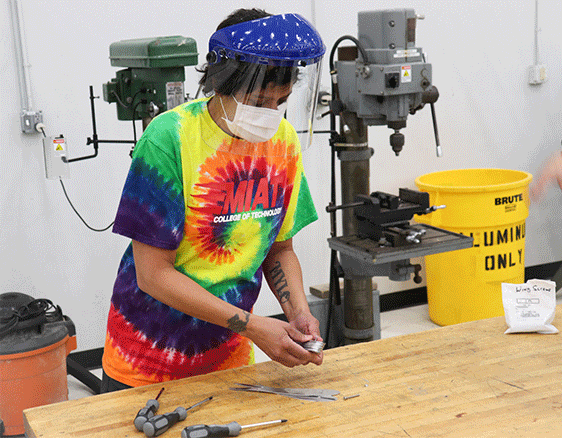
completed in 3 to 24 months. Our program offerings include aviation maintenance, electro-mechanical technology, energy technology, wind power technology, non-destructive testing, welding, and HVACR (heating, ventilation, air conditioning, and refrigeration). We are a veteran-friendly career college, and we serve students of all ages and in all stages of their life and career. We also deliver cooperative technical programs with local high schools and employers.
March 12 changed everything for all of us at MIAT and for everyone else in the world. Soon after the world pandemic and U.S. national disaster declarations on March 12 and March 13, respectively, Governor Gretchen Whitmer of Michigan issued Stay-at-Home orders which were recently extended to June 12 and presented a six-phased approach to re-opening Michigan. Governor Greg Abbott of Texas issued Stay-at-Home orders which expired April 30 and outlined a three-phased approach to reopening the state.
Initially, we made the decision to extend our spring break from March 18 to March 30 and sanitize everything – equipment, floors, desks, chairs, worktables, tools, computers, doors, doorknobs and anything that could be touched. Originally, we were preparing for students to return to campus on March 30; however, we quickly realized that was not viable. We then transitioned to an entirely remote learning platform, placing any necessary hands-on coursework on hold temporarily and commencing with remote campus operations.

Fortunately, our pre-pandemic student enrollment of 650 in Canton and roughly 550 in Houston has remained steady. Despite the change in delivery, we continue to see solid growth in our temporary virtual student admissions process. Despite our students typically being kinesthetic learners, they are doing remarkably well in their remote learning environment thanks in no small part to the training department working tirelessly to identify new and interesting ways to transfer critical knowledge remotely. Additionally, our faculty and staff are continuing to perform their roles and responsibilities from their homes. As we continue to see the emotional, physical, and financial toll of the pandemic unfold, we have offered students the opportunity to take a leave of absence. We also have provided in school tuition forbearance for anyone experiencing a financial hardship during this crisis.
Our May 2020, commencement ceremonies were postponed to an undetermined future date. Given that a joint graduation is unlikely under normal circumstances, we are coordinating a joint virtual graduation to include both Texas and Michigan graduates.
Our new normal for now!
Technology has been, and continues to be, one of our best friends throughout all this. In this new environment, it is impossible to overcommunicate. We have worked hard at maintaining positive, ongoing communications in many formats with a steady stream of campus presidents’ video updates, Zoom video meetings, letters, emails, and regular social media posts to keep our students and staff informed and engaged. Recently, we invited our students to share photos and videos of their home office or study space to create a united video showing that we are all in this together.
With help from our Admissions team members working from their homes, we have created new virtual campus tours and learned how to maximize our virtual admissions interviews with prospective students. Response to these new approaches to campus tours and the admissions process has been extremely positive. We work daily to create touchless transactions in preparation for a seamless transition to daily life back on campus.

Also, during these challenging last few weeks, we have included employers, strategic partners, and elected officials in our plans for hybrid instruction models and new normal operations that must factor in social distancing, personal barriers, sanitation, and other safety measures. Our Program Advisory Committee members have been instrumental in providing information on best practices for re-opening that they are seeing in the industries we support. Additionally, they have provided invaluable feedback on how best to prepare our graduates working in a socially distant world that is important as we prepare the next generation of essential employees. These solid relationships within our respective communities that we established months and years ago have been immensely valuable.
By getting to know our elected officials and inviting them to tour our campuses months ago, we have secured support for our school. By briefing them on the efficacy of our workplace readiness programs, we have solidified our strategic role in training essential workers – particularly in the areas of transportation and critical infrastructure. We have communicated that we are resilient, that what we do matters to society, and that we are here for the long haul. Their support and guidance have been helpful as we have navigated these unprecedented times.
Reopening slowly and carefully
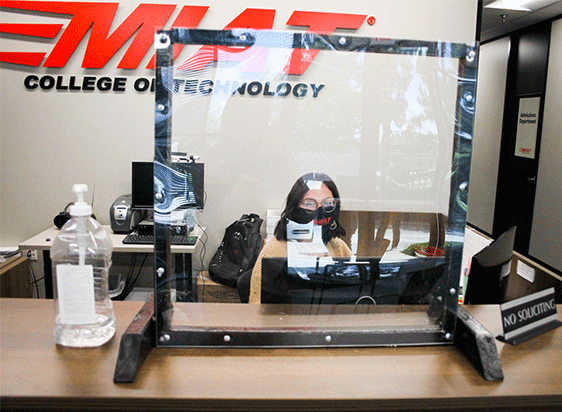
We are taking every measure possible to mitigate risks to our people and their loved ones as we slowly start to bring staff, faculty, and students back to campus. We understand and respect the views and opinions of all our faculty, staff, and students regarding COVID-19 and its impact regarding re-opening our campuses. The impact of this pandemic is broad-reaching and has influenced our daily lives differently. Bringing empathy and humanity to our interactions with staff and students during this process has been critical for our ability to move forward in a unified and effective way.
For both campuses, every aspect of a course that can be delivered remotely will continue to be done so. However, for all our students to successfully reach graduation and to become employable, some aspects of hands-on labs are necessary. Thankfully, leaders in both states understand that critical component of career and technical education and have provided health and safety guidelines for us to use to begin operating labs on campus.
There are a variety of protocols in place, but some include:
- Everyone on campus must wear a face covering and maintain 6 feet of social distance as much as is reasonable.
- Groups of hands-on learning take place with 10 or less people.
- Concession machines, chairs, and tables have been removed from the lunchrooms to minimize mingling.
- Protective plexiglass barriers have been installed in common work areas.
- Groups will be zoned in groups of learning (designations made with different lanyards in Canton and wristbands in Houston) for contact tracing in the event any student, faculty or staff member gets sick.
- And, as is standard practice, every student, faculty member, visitor, and vendor has a temperature and wellness check every day upon arrival at campus.
In addition, it was critical that we develop a response procedure if someone on campus does contract COVID-19. While we hope that is not the case; we have learned that it is essential to prepare for tomorrow versus reacting to today. Therefore, our responsiveness plans have had to be comprehensive in nature.
The upside – and yes, there is one!
This pandemic has an upside, and we have found ourselves repeating “necessity is the mother of invention.” Here are just a few positive outcomes that this potentially negative situation has manifested:
- We are implementing a cashless transaction system for tuition, fees, books and tools so that students can now make payments without in-person transactions.
- We are setting up an online bookstore for our students.
- We conduct an in-depth, online new student orientation utilizing the online platform students will use in their classes.
- We are continuing to stay engaged with high school students and recent high school graduates with the help of our recruiting teams through group calls and Zoom video meetings. High school counselors have been outstanding in facilitating virtual meetings with graduates and MIAT Admissions team members.
- We have updated our virtual campus tours.
- We are finding new ways to become paperless in all departments.
As leaders responsible for over 1,000 career and technical education students, we are focused on controlling our “controllables” and making sure we support each other daily. As leaders, we often forget to take care of ourselves, and it is critical to have peers upon whom we can rely.
We, like everyone else, are learning and growing as we navigate this phase. Some days are, of course, easier than others. No matter what, we know that as a school and as a nation, we are stronger together and brighter, healthier days are on the horizon.
JENNIFER PAUGH has been the President of MIAT College of Technology-Michigan in the Detroit metropolitan area since March 2016. Paugh has more than 20 years of experience in career education and training, having served in both faculty and operations leadership positions at colleges in Illinois, Michigan and Wisconsin. She has served in roles of president, dean, operations leader, and faculty member.
Paugh is a member of the MIAT board of directors.
Contact Information: Jennifer Paugh // President // MIAT College of Technology Canton // 800-447-1310 // jpaugh@miat.edu // www.miat.edu // https://www.facebook.com/MIATConnection/ // @miatcollege // https://www.linkedin.com/school/michigan-institute-of-aviation-and-technology/ // https://www.instagram.com/explore/locations/8519021/miat-college-of-technology-canton-mi-campus/?hl=en
JOHN WILLIS is the President of MIAT College of Technology-Texas. The campus is in Houston. Willis also has more than 20 years of leadership experience in career education and training for colleges and institutions in Arizona, Kansas and Texas. He has served in the roles of president, dean, and faculty member.
Willis is a member of the MIAT board of directors.
Contact Information: John Willis //President // MIAT College of Technology Houston // 888-547-7047 // jwillis@miat.edu // www.miat.edu // https://www.facebook.com/MIATConnection2/ // @miatcollege // https://www.linkedin.com/school/michigan-institute-of-aviation-and-technology/ // https://www.instagram.com/explore/locations/8519021/miat-college-of-technology-canton-mi-campus/?hl=en
